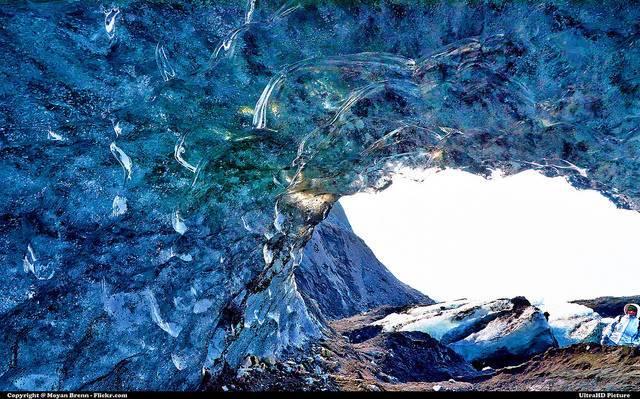
Despite its geographic location, Iceland is hot -- well, at least in the figurative sense: This country, slightly smaller than Kentucky, has emerged as a popular holiday destination for global travelers.
This can be partially attributed to the success of its national air carrier, Icelandair, which since the 1960s has allowed passengers to stopover in the isolated North Atlantic country for as long as week. The airliner’s competitive fares allow college students to do the train-and-hostel trips of their dreams while enabling other travelers navigating either side of the Atlantic to make their vacation or business trip even more exotic.
Tourism has been part of the revitalization of Iceland’s economy, which cratered during last decade’s fiscal crises. But the country recovered, despite the fact that 97 percent of its banking industry collapsed in a few days. Only this month were the country’s strict capital controls finally lifted.
In short: Iceland is on a high, and its economic nightmare seems ages ago. The infamous eruption of the Eyjafjallajökull volcano, which disrupted global air travel in the summer of 2010, at first worried local tourism officials as Iceland was still on a slow path to recovery. As Tim Moore argued in the Financial Times, the opposite proved true as potential visitors became much more interested. Budget airlines seized on the trend, as well as cheap landing fees at the international airport serving Reykjavík, the country’s capital.
But as Bloomberg reported on Thursday, tourism has also imposed its own stress on the country.
Home to only 323,000 people, Iceland is on course to host 2.3 million travelers this year, almost a five-fold increase from the half a million people who visited in 2010. The nation is home to fascinating topography and a bounty of icebergs and glaciers -- not to mention the opportunity to visit scenes from the HBO series “Game of Thrones.” And the droves of visitors nudged the country to develop a new master plan for Reykjavík’s airport.
Today, travelers are exempt from many of the taxes imposed on Iceland’s citizens and residents, but that began to change earlier this year, and some taxes are now levied at a discounted rate. And that may continue.
For now, the country’s coalition government is at the earliest stages of sorting out the details, Bloomberg’s Omar Valdimarsson explained. Hotel taxes could increase, tour guides and transport services may be subjected to new fees, or both visitors and locals may be required to purchase an annual “nature pass." Similar ideas proposed within Iceland's parliament in the past, however, have failed.
Some Icelanders argue that such taxes are needed to strengthen the country’s infrastructure and cope with the threats of environmental degradation.
Outside of Reykjavík, much of the country is ill-equipped to handle the influx of visitors. The result is an explosion in growth for services such as Airbnb, which became the target of legislators as more residents seek to benefit from the country’s tourism boom. One recent report suggested bookings on the popular room-sharing site more than doubled over the previous year. Icelandic officials have since imposed a value-added tax on Airbnb stays as the number of rooms available for the service exceeds the total hotel rooms available in the country.
Everyone wants a slice of Iceland’s tourism pie. The country’s economy expanded 7.2 percent last year – a rate unheard of in Europe. But Icelanders are wondering if they should welcome this heady growth, and at what cost.
Image credit: Moyan Brenn/Flickr

Leon Kaye has written for 3p since 2010 and become executive editor in 2018. His previous work includes writing for the Guardian as well as other online and print publications. In addition, he's worked in sales executive roles within technology and financial research companies, as well as for a public relations firm, for which he consulted with one of the globe’s leading sustainability initiatives. Currently living in Central California, he’s traveled to 70-plus countries and has lived and worked in South Korea, the United Arab Emirates and Uruguay.
Leon’s an alum of Fresno State, the University of Maryland, Baltimore County and the University of Southern California's Marshall Business School. He enjoys traveling abroad as well as exploring California’s Central Coast and the Sierra Nevadas.














